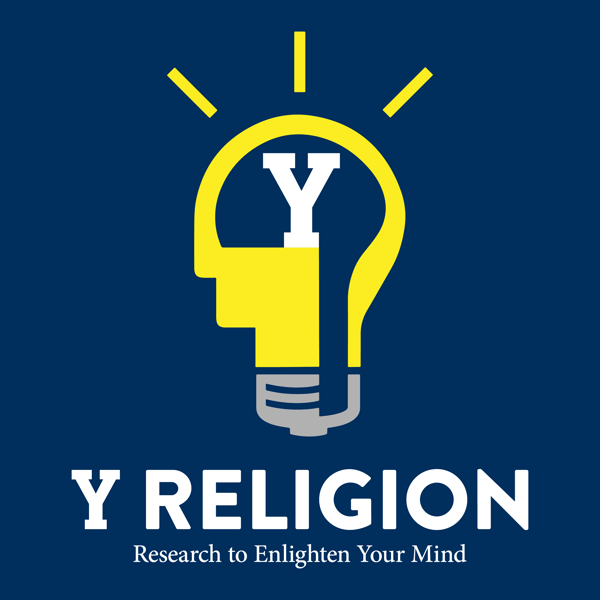Episode 103: An Interfaith Approach to Keeping the Sabbath Day Holy (Andrew Reed)
Y Religion
BYU Religious Education
4.8 • 1.7K Ratings
🗓️ 1 May 2024
⏱️ 54 minutes
🧾️ Download transcript
Summary
For thousands of years the Sabbath as an institution has remained a core aspect of religious life, and people have constantly fought to keep it holy. The prophet Isaiah declared the Sabbath “a delight, the holy of the Lord, honourable” (Isaiah 58:13). How can we observe the Sabbath and keep it holy? How might rituals of neighboring religions inform Latter-day Saint experiences with making the Sabbath a delight? In this episode Dr. Andrew Reed, associate professor of Church history and doctrine, discusses his chapter “‘The Erosion of Sabbath Worship Is Now Extensive’: The Imperative to Learn Holiness from Other Religious Traditions.” Dr. Reed presents an interfaith approach for slowing the erosion of Sabbath worship. He outlines efforts by religious communities to reengage believers with the Sabbath (including thinking about the secular), analyzes the ways both Jews and Christians think about sacred time, and examines potential applications for Latter-day Saints.
Click here to learn more about Andrew Reed
Publications:
· “‘The Erosion of Sabbath Worship is Now Extensive’: The Imperative to Learn Holiness from Other Religious Traditions” (in Sacred Time: The Sabbath as a Perpetual Covenant, Religious Studies Center, 2023)
· “The Influence of Rose Marie Reid” (Y Religion Podcast, episode 21, December 2020)
· “A History of the Jewish—Latter-day Saint Academic Dialogue” (in Understanding Covenants and Communities: Jews and Latter-day Saints in Dialogue, Religious Studies Center, 2020)
· “Framing the Restoration and Gathering: Orson Hyde and Early Mormon Understandings of Israel, Jew, and the Second Coming” (in Foundations of the Restoration: Fulfillment of the Covenant Purposes, Religious Studies Center, 2016)
Transcript
Click on a timestamp to play from that location
| 0:00.0 | Hello, why religion friends. John Hilton here. |
| 0:03.0 | About a year ago, I was blessed to be at the Western Wall on a Friday night to welcome in the Sabbath. |
| 0:09.0 | As you may recall, in the Jewish tradition, Sabbath begins on Friday at sundown and goes |
| 0:15.4 | until Saturday at sundown. |
| 0:17.7 | So if you ever are in Jerusalem on a Friday night, I definitely recommend going to the |
| 0:21.9 | Western Wall, where you'll find hundreds of Jewish people. I definitely study it was an incredible atmosphere. It made me think about myself growing up. |
| 0:34.4 | On a Sunday morning was I singing and dancing so excited to welcome the Sabbath? |
| 0:38.7 | Honestly not. And I realized that there was a lot I could learn in my life right now from these |
| 0:44.2 | individuals who were so focused on celebrating the Sabbath. I went up to one young |
| 0:49.6 | man and started talking to him about his life. He grew up in a very traditional Jewish |
| 0:53.8 | home and their family rules around the Sabbath were way strict. As he was |
| 0:59.4 | telling me about the different traditions that they had I said well when you were 14 or 15 were you |
| 1:03.9 | tempted at all to rebel against these rules and he looked at me as though I was |
| 1:08.3 | from another planet and he said why would I rebel against the Sabbath? I love the Sabbath day. It's a day of joy, a time to reflect on my relationship |
| 1:17.6 | with God. I walked away from that conversation with the distinct impression that I could learn a lot more about making the Sabbath a holy day from |
| 1:27.0 | this young man and his friends. We're not alone in this, right? We're not the only |
| 1:31.7 | ones trying to maintain Sabbath or the only ones trying to maintain |
| 1:34.7 | religiosity or a religious belief in a world that seems to have a kind of combative approach to it sometimes. |
| 1:42.1 | We have partners in this and we've had partners who lived a |
| 1:45.4 | thousand years ago and we have partners who are living today and so the |
| 1:48.8 | conversation I think is so important for us because we may not do exactly what they do, right? We may adopt some aspect |
| 1:55.2 | or we may learn from their approach, but it's not something that directly applies into our |
... |
Please login to see the full transcript.
Disclaimer: The podcast and artwork embedded on this page are from BYU Religious Education, and are the property of its owner and not affiliated with or endorsed by Tapesearch.
Generated transcripts are the property of BYU Religious Education and are distributed freely under the Fair Use doctrine. Transcripts generated by Tapesearch are not guaranteed to be accurate.
Copyright © Tapesearch 2025.

